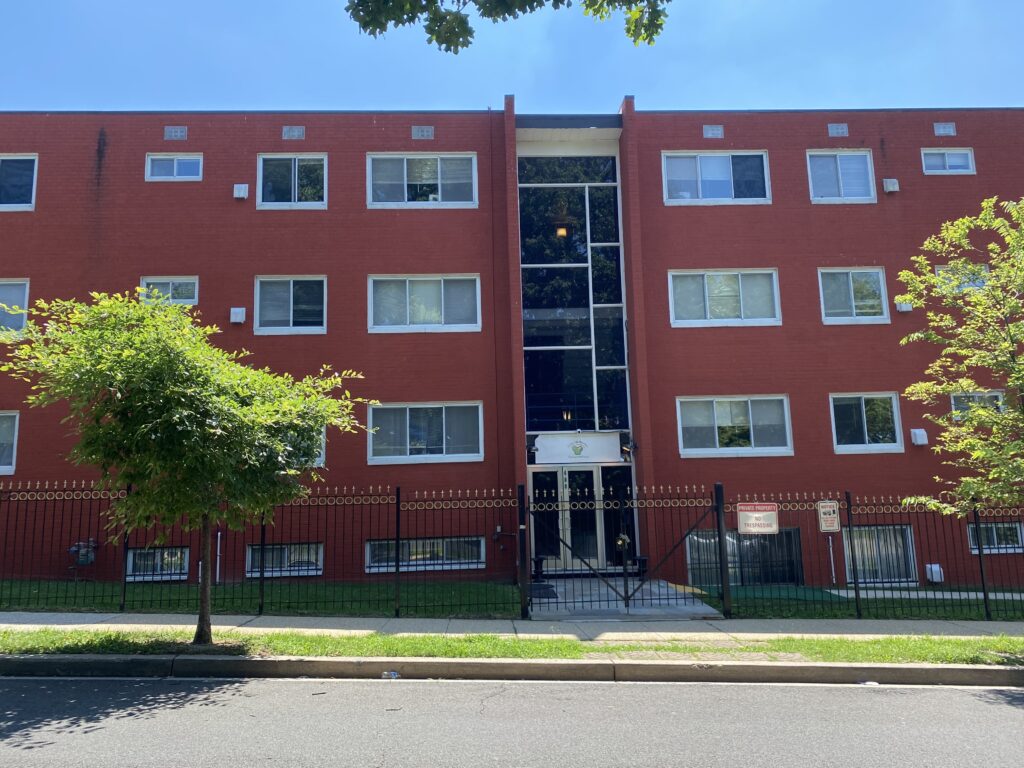
Mayor Muriel Bowser’s office cut the ribbon on D.C. ‘s first adult LGBTQ shelter in late July. The low-barrier shelter, funded via the American Rescue Plan Act, will offer 40-beds for unaccompanied adults over 25 who identify as LGBTQ and is set to open sometime this August.
“We are recognizing with this shelter … that people experience homelessness differently, for different reasons and in different ways, and that people who avoid homeless shelters do so for a multitude of reasons,” Bowser said at the ribbon cutting ceremony.
For Sybil Taylor, a bisexual Street Sense Media vendor who has experienced homelessness, the idea behind a shelter solely for LGBTQ adults is a good one. For some individuals, their sexuality is the catalyst behind their experience of homelessness, she said.
According to Taylor, during her time selling Street Sense papers, she’s spoken to several individuals who were forced out of their homes by family members after they came out — an issue she hopes will be addressed with shelter like this.
“I really think that’s really unfair. You know, they don’t have nowhere to go,” she said. “I think they should have shelter for the gay community.”
Jasper Bowles, the chief advocate for the LGBTQ community in the mayor’s office, expounded on the need for LGBTQ-specific shelter for adults amongst D.C.’s housing options.
“We know that members of our LGBTQIA community, particularly our transgender, non-conforming, and non-binary family members, face some of the highest rates of discrimination in housing… and this will be a safe haven,” he said.
A 2020 study by the UCLA Williams Institute School of Law found that LGBTQ individuals faced both higher rates of homelessness than cisgender individuals and challenges accessing homeless shelters and services.
In addition, LGBTQ adults and youth often experience violence and trauma while being unhoused, Street Sense reported in June.
Taylor also noted that during her own experience with homelessness, shelters could be “pretty nasty” — sometimes asking residents to leave the premises by 5 a.m. and removing them if they weren’t back by a certain time — and she hopes this shelter will be different.
“I feel that they should make (residents) feel wanted, number one,” she said. “Number two, they should have some kind of social worker, some kind of case management, that can sit down and talk with them to where they could sit down and work with them. They should make the shelter comfortable.”
For those who will work with residents of the shelter, Taylor encouraged compassion and understanding of the unique difficulties of being both LGBTQ and homeless.
“I just want them to know that they’re not alone, that there are other people out there like them,” Taylor said. “There are people who can work with them, to make things better for them. Make their life a little better.”
Zeilinger said that the shelter was created to provide trauma-specific resources, case management and substance use disorder services. These services will be provided by the KBEC Group, a direct aid organization, with the ultimate goal of a successful transition to long-term housing.
The shelter is being operated by the Community Partnership for the Prevention of Homelessness, which has two providers on their behalf — the Coalition for the Homeless, which manages the facility, and the KBEC Group.
In an interview with Street Sense, D.C. Coalition for the Homeless Director Michael Parell said that his organization — which will serve as the “landlords” of the property — is proud to be a part of the project.
“The (opportunity) to serve the LGBTQ-plus community surfaced. We were excited about the prospects building, continuing to serve persons who are homeless in our community, but particularly the underserved population of LGBTQ adults who are homeless,” Parell said.
Barbara Martin, who experienced homelessness after coming out to her parents as a lesbian, reflected on her experiences at the ribbon-cutting event. Martin will now work at the shelter, helping LGBTQ adults experiencing the housing insecurity that she also endured because of her sexuality.
“It is my pleasure to confidently say that this shelter will not only provide members of the community a bed, but it will be a transitional home, where people can find security, acceptance, trauma-informed care, and safety,” she said.








